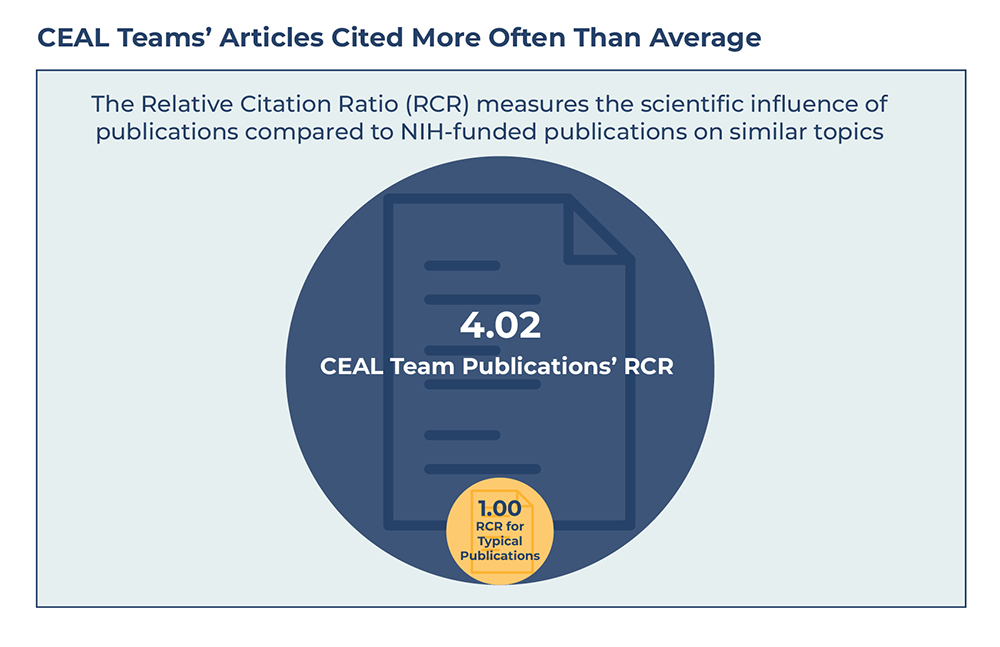CEAL teams have contributed nearly 100 peer-reviewed articles to the field of community-engaged research.
When the first CEAL cohort started in September 2020, little research had been conducted to understand COVID-19 experiences, knowledge, attitudes, and behaviors among marginalized populations. The CEAL teams focused on conducting formative research using methods such as surveys, focus groups, and listening sessions with communities. CEAL teams were able to focus their research on specific populations or settings like community health clinics, rural communities, American Indian communities, and young adults, to name a few.
Many of the CEAL teams engaged in substantial dissemination activities intended for their communities rather than the traditional academic audience through issue briefs, community forums, and public online dashboards.
The impact of the CEAL teams’ published research can already be seen, with their publications being cited an average of four times more than similar NIH-funded articles1.
CEAL teams will continue to contribute to growing the knowledge in the community-engaged research field through their findings and research with communities on chronic disease disparities and social determinants of health.

Image content reflects impact as of July 2023.
Learn more about how CEAL is contributing to research:
The Impact of Motivational Interviewing on Personal Health Decisions (DMV CEAL)
Integrating Interpreters into the Clinical Research Team (MA CEAL)
Research Helps Ensure COVID-19 Therapies Benefit the U.S. Population (AZ CEAL)
This Isn't Helicopter Research (CA CEAL)
1. As of July 2023
